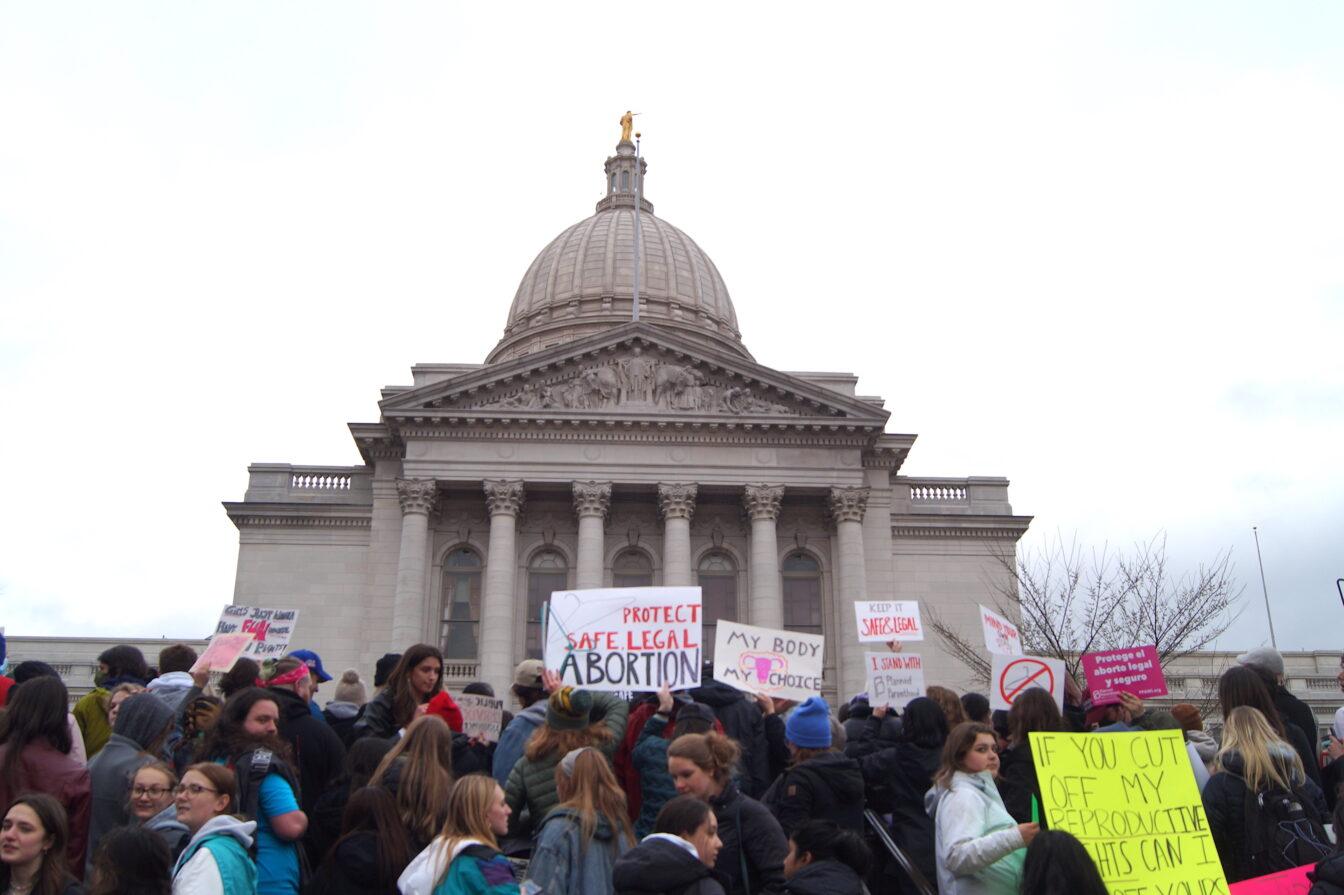Abortion has become a politically charged and divisive topic in America, and politicians have not held back from projecting their political agenda versus their true beliefs regarding this contentious issue.
The Wisconsin gubernatorial election between Tim Michels and Tony Evers will take place Nov. 8, and the abortion debate has played a large role in both individuals’ campaigns. Both candidates have made numerous remarks about abortion access, and this election will determine whether the Wisconsin governor’s office will advocate for a women’s right to choose or continually restrict access to reproductive healthcare.
Evers has used his position to pursue equitable and safe abortion. While Evers stands by the constitutionality of Roe v. Wade, Michels has a long history of anti-abortion sentiment. Before he was the Republican nominee for governor, Michels was zealously anti-abortion, saying he was against even exceptions for rape and incest.
Since winning his primary, however, Michels, like many other Republican candidates, has significantly softened his stance on the issue. Michels has taken great measures to rebrand his abortion stance, stating that he would sign a law for exceptions for rape and incest, a clear pivot from his initial sentiment. With the election just weeks away, this change comes at an opportune time for Michels, considering 83% of Wisconsin thinks there should be an exception for rape and incest, according to Marquette Law School.
Big tech infiltration of healthcare industry presents patient privacy concerns
Despite his effort to dodge his previous attitudes to prevail in the polls, Michels has justified his no-exception abortion policies with religiously charged rhetoric, revealing the concerning mix of church and state that the anti-abortion rights movement bases its policy preferences on.
The framers of the Constitution stressed the importance of not having a national religion — primarily because the freedom to practice any religion is a fundamental principle of liberty. The Establishment Clause explicitly states that the government should not advance or prohibit religion — resulting in the widely accepted notion that church and state must be separated.
This separation is especially important during this politically polarized period because it is clear that the Republican Party is attempting to promote a legal agenda under divine instruction. Politics requires compromise, but people who believe they are carrying out a divine interest may be unwilling to put these beliefs aside when they are used to justify the law.
While many have tried to make a scientific argument for life beginning at conception, opposition to abortion almost always goes back to religious beliefs. The modern anti-abortion rights movement was born as an Evangelical response to Jimmy Carter, so it undoubtedly has Christian roots.
Democrat Jimmy Carter was one of America’s most religious presidents, and during his campaign, he claimed that his Evangelical Christianity was an instrumental part of who he was. But he maintained a secular position throughout his term — surprising and disappointing his constituents who were a part of the nascent religious-right political movement.
Many religious individuals were upset with Carter’s lack of enthusiasm for promoting Christian ideas and his unwillingness to legislate on the basis of religion. Republicans took advantage of this and began promoting Evangelical ideals, including the importance of life, to create a loyal base. This marked the advent of the religious right, highlighting that the anti-abortion rights movement is deeply connected to Evangelical values.
Political influence in wording of ballot referenda unfairly skews voters’ choices
Without the federal government protecting the separation of church and state, there would be a mass suppression of various religions in many states of America. To achieve true religious freedom in this nation, policies and laws cannot have religious justifications.
Unfortunately, millions of Americans are being forced to accept religiously-motivated abortion bans. Some states are not only trying to abolish a woman’s right to choose, but they are taking advantage of their newfound freedom to criminalize women and doctors all in the name of God.
By overturning Roe v. Wade, the conservative members of the Supreme Court have chipped away at the walls that separate church and state. Overturning this precedent has given states the leeway to act on religious convictions. With the power to regulate abortion back in the hands of the states, 13 states have banned abortion from the moment of conception — a standard rooted in religious beliefs.
Many politicians explain their anti-abortion stances with religious justifications. In a 2004 interview with WPR, Michels stated that he supported forcing a 12 year-old rape victim to give birth, rationalizing it by explaining that the child was “created by God.”
Kay Ivey, the governor of Alabama, pushed her anti-abortion agenda by stating “every life is a sacred gift from God.” Texas Governor Greg Abbot restricted abortion on a similar basis.
“Our creator endowed us with the right to life,” Abbot said.
The harm in splitting Wisconsin’s Department of Natural Resources
Religious views can guide an individual’s moral compass, but they cannot act as a direct justification for laws. Lawmakers who project their religion-based rationales for banning abortion disregard countless belief systems and perpetuate a narrow and myopic interpretation of the law.
Michels, Ivey, Abbot and many others are not taking into consideration that not all Americans share the same view or belief in God’s motivations and powers. The lack of acknowledgment and respect for divergent views is troubling, and it bodes ominously for the future of women’s and marginalized communities’ rights.
Laws that seek to prevent abortion before the fetus is medically viable fail to serve a secular purpose. It is important to recognize when the lines between religion and legislation become blurry because, without a clear separation, millions of people lose the right to choose for themselves.
As the roles of church and state are becoming increasingly intertwined, Americans may stand to lose even more rights guaranteed by what was intended to be a secular Constitution.
Abbey Handel ([email protected]) is a freshman studying journalism and political science.




















